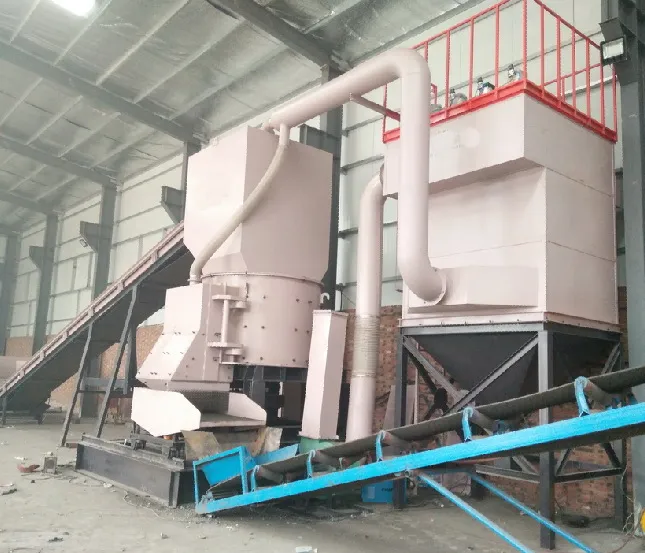

Dic . 07, 2024 12:43 Back to list
Industrial Shredders Transforming Waste Management and Recycling
In today’s fast-paced world, effective waste management and recycling have become more critical than ever. As industries generate vast quantities of materials that need to be disposed of, large industrial shredders have emerged as vital components in the waste processing ecosystem. These powerful machines are designed to shred, crush, and reduce various materials, offering numerous benefits for businesses and the environment alike.
Understanding Large Industrial Shredders
Large industrial shredders are heavy-duty machines capable of handling large volumes of materials, making them essential for industries such as manufacturing, construction, and waste management. Unlike smaller shredders intended for light use, industrial shredders are built to withstand constant operation and can process a wide range of materials, including plastics, metals, wood, textiles, and electronic waste.
The design and technology of these shredders vary significantly. They often feature multiple rotating blades that can either cut or tear apart materials, depending on the type of shredder. Some common types of industrial shredders include single-shaft shredders, double-shaft shredders, and rotary drum shredders. Each type is optimized for specific applications, thus maximizing efficiency and material recovery.
The Importance of Shredding in Waste Management
Shredding plays a crucial role in modern waste management practices. By breaking down large items into smaller pieces, shredders facilitate subsequent processing steps such as recycling and incineration. For instance, shredded materials are easier to transport and sort, which is particularly advantageous in recycling operations. Additionally, many recycling facilities prefer shredded materials as they allow for more efficient processing and extraction of valuable resources.
Furthermore, shredding helps in reducing landfill waste. By converting bulky items into smaller, more manageable forms, industrial shredding reduces the volume of waste that ends up in landfills, thereby extending their lifespan. This is especially important in regions where landfill space is limited and environmental regulations are strict.

Environmental Benefits of Industrial Shredders
The environmental impact of industrial shredders extends beyond just waste reduction. By facilitating recycling, these machines contribute significantly to resource conservation. For instance, shredded plastics can be easily melted down and repurposed into new products, minimizing the need for virgin materials and the associated environmental impact of extraction and processing.
Moreover, shredding can play a role in energy generation. Certain materials, particularly organic waste, can be shredded and converted into biomass energy, a renewable energy source that can substitute fossil fuels. This process not only helps reduce waste but also supports the transition toward a more sustainable energy future.
Choosing the Right Industrial Shredder
Selecting the appropriate industrial shredder is crucial for achieving optimal performance and cost-effectiveness. Businesses must consider several factors, including the type of materials to be shredded, the desired output size, and the intended application of the shredded material. It’s essential to engage with manufacturers and suppliers to identify the most suitable shredder that meets specific operational needs.
Another significant consideration is the machine’s operational efficiency and maintenance requirements. Advanced models come equipped with technologies that reduce downtime and service calls, marking an important factor for industries that rely heavily on consistent processing capabilities.
Conclusion
As the demand for effective waste management and recycling solutions continues to grow, large industrial shredders will play an increasingly important role in sustainable practices across various sectors. Their ability to process large volumes of materials not only streamlines waste handling but also contributes to environmental conservation. By investing in the right shredding technology, businesses can enhance their operational efficiency and support a circular economy that reduces resource consumption and environmental impact. In an era where sustainability is paramount, industrial shredders will undoubtedly remain at the forefront of innovation in waste management and recycling.
Latest news
Troubleshooting Common Eddy Separator Problems
NewsJul.04,2025
The Role of Metal Recycling Plants in Circular Economy
NewsJul.04,2025
The Impact of Recycling Line Pickers on Waste Management Costs
NewsJul.04,2025
Safety Features Every Metal Shredder Should Have
NewsJul.04,2025
How Industrial Shredders Improve Waste Management Systems
NewsJul.04,2025
How Cable Granulators Contribute to Sustainable Recycling
NewsJul.04,2025